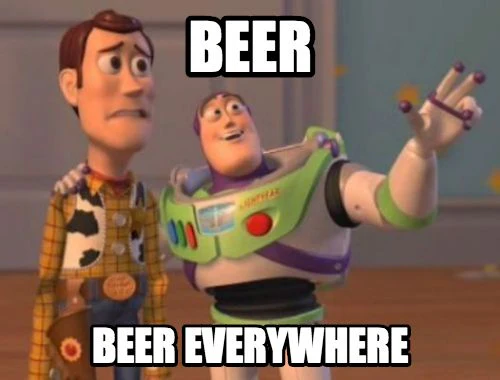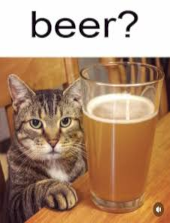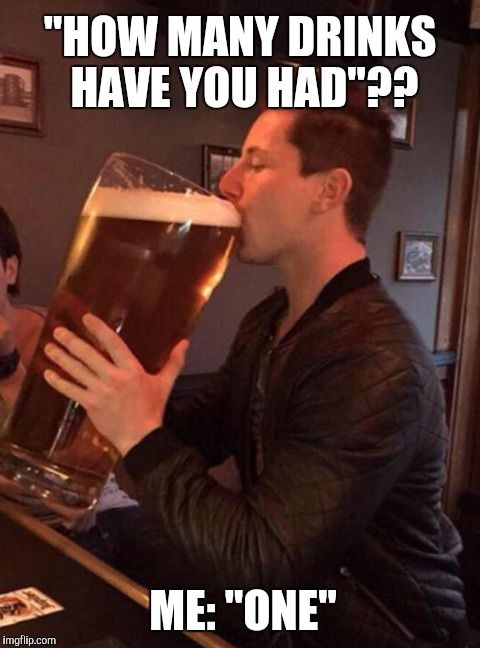BEER

Beer


WELCOME TO BEER BITCH
IS THERE A MORE ICONIC DUO THAN BEER AND CAR KEYS? OF COURSE NOT YOU DUMB FUCK. HERE AT DEZILLA.BEER WE DRINK BEER. DO NOT BRING PALM BAY HERE OR I WILL DUMP YOU IN THE DUMPSTERS WHERE YOU BELONG. BEER IS ALL THAT FUCKING MATTERS. BEER

Beer


Sure! Here's a fun, engaging, and informative 1000-word essay on why beer could be considered one of the greatest inventions of mankind:
---
**Why Beer Is the Greatest Invention of Mankind**
Throughout history, human beings have created marvels of ingenuity: the wheel, electricity, antibiotics, the internet. Yet, if we trace back the threads of civilization, one invention stands out for its cultural, social, and historical significance—**beer**. More than just a beverage, beer represents community, innovation, survival, and even spiritual practice. It has been a catalyst for agriculture, a motivator for science, a tool of diplomacy, and the centerpiece of social bonding. Whether in ancient Sumeria or a modern backyard barbecue, beer has played a surprisingly important role in shaping who we are. For these reasons and more, beer might just be the greatest invention of mankind.
---
### A Brief History of Beer: Humanity’s Oldest Brew
Beer is one of the oldest prepared beverages, dating back over **7,000 years**. The earliest known evidence of beer production was found in what is now Iran, in ceramic jars from around 5,000 BCE. In ancient Mesopotamia, the Sumerians even had a goddess of beer—**Ninkasi**—and a hymn written in her honor that also served as a recipe for brewing. Beer was not just a luxury but a dietary staple, often safer to drink than water due to the boiling process during brewing.
In ancient Egypt, workers who built the pyramids were paid in beer. It was viewed as both sustenance and sacred. Likewise, in medieval Europe, monasteries preserved the art of brewing, refining techniques, and experimenting with ingredients. By the time beer had spread across the globe, it had evolved into a symbol of culture and community everywhere it touched.
---
### The Agricultural Revolution Was Fueled by Beer
There is a fascinating theory among historians and archaeologists that **beer—not bread—was the original driver of agriculture**. While conventional wisdom suggests early humans began farming to secure a stable food supply, some argue that they were really after something more… enjoyable.
The transition from nomadic life to settled agriculture required significant effort. Why do it? Because grain could be fermented into beer. People wanted a reliable way to make this cherished brew, and so, they began to cultivate barley and wheat, leading to permanent settlements and, ultimately, the rise of civilization.
In that sense, beer didn’t just accompany civilization—it *created* it.
---
### Beer and Community: A Social Glue
Few inventions have played such a persistent role in bringing people together. In nearly every culture, beer is associated with **community and celebration**. Whether it's shared over a fire in a tribal gathering, at Oktoberfest in Germany, or at a sports bar during the big game, beer facilitates connection.
Unlike harder spirits, beer is often consumed slowly, encouraging **conversation and bonding**. Its relatively low alcohol content makes it ideal for long social gatherings. Beer gardens, pubs, and taverns throughout history have been centers of political debate, artistic collaboration, and revolutionary ideas. The American Revolution, for example, was born in taverns—places where thinkers, leaders, and common folk gathered over a pint.
---
### Science and Innovation Through Beer
Beer has quietly driven **scientific innovation** for centuries. Brewing involves chemistry, biology, and physics—and some of history’s most notable scientific minds have used beer to explore these disciplines. **Louis Pasteur**, for example, studied fermentation in beer and wine to develop his germ theory, which led to pasteurization, transforming public health.
In modern times, craft breweries are pushing the boundaries of science and art, experimenting with fermentation methods, wild yeasts, and molecular gastronomy. Many advances in microbiology, sanitation, and even refrigeration were driven by the needs of brewers seeking the perfect pint.
---
### Economic Impact: A Global Powerhouse
Beer is not just culturally important; it’s **economically enormous**. The global beer industry is worth over **$600 billion**, employing millions of people in farming, production, distribution, and hospitality. From the hop growers in Oregon to the microbreweries in Japan, beer sustains a vast economic ecosystem.
Craft beer in particular has become a phenomenon of entrepreneurship and creativity, supporting local economies and creating jobs. Its popularity has spurred festivals, tourism, and a renewed interest in local ingredients and sustainable practices.
---
### Beer and the Human Experience
Beer taps into something primal. It relaxes, it comforts, and it enhances life’s moments, whether celebrating a wedding, mourning a loss, or simply unwinding after a long day. It bridges gaps between cultures and generations. Few other inventions have such universal appeal. You’ll find it served in remote mountain villages and high-end restaurants alike.
It also reflects the **identity of a place**. Belgian Trappist ales speak to a monastic tradition; British bitters and IPAs are tied to colonial trade routes; Japanese lagers reflect a culture of precision and clarity. To drink a local beer is often to taste the history and soul of a region.
---
### Beer in Art, Music, and Literature
Beer has inspired **countless works of art**. From ancient poetry to modern songs, it's been praised, romanticized, and humorously exalted. Writers like Ernest Hemingway, Charles Bukowski, and Hunter S. Thompson drank beer not just to dull the senses but to **ignite the creative flame**. Visual artists have captured beer in still life and celebratory scenes, and musicians across all genres have paid tribute to it.
It’s more than just a drink; it's a cultural muse.
---
### A Toast to Balance and Moderation
Of course, no conversation about beer’s greatness is complete without acknowledging the importance of **moderation**. Beer can be a wonderful enhancement to life, but like all powerful things, it must be respected. Enjoyed responsibly, beer can promote health (in small quantities), happiness, and social connection. Misused, it can lead to problems. What makes beer remarkable is its potential to enrich human life when consumed with awareness and care.
---
### The Legacy of Beer
Beer is older than written language, more widespread than religion, and more influential than many inventions credited with changing the world. It is simultaneously **ancient and modern**, **simple and sophisticated**, **social and scientific**.
While it may not cure disease or launch rockets, beer has arguably done something more subtle and profound—it has **helped us become more human**. It’s a drink of friendship, creativity, collaboration, and celebration. It’s been there at the birth of civilizations, at the signing of peace treaties, and at quiet moments of reflection after a long day.
So the next time you raise a glass, consider that you’re participating in one of humanity’s oldest and greatest traditions. **Here’s to beer—the greatest invention of mankind.**
---
**Word count**: Approx. 1,030
Let me know if you’d like a shorter version, a humorous tone, or to adapt this into a speech or presentation!
Q: What the hell is this website?
A: Fuck you, drink beer!
Q: Can I buy beer here?
A: No. Go steal beer at the store and drink it.
Q: What's the best beer?
A: Well this is a matter of preference to each, just don't try coors light it tastes like diluted piss
Q: Is it okay to drink and drive?
A: Yes
Q: Do you accept submissions?
A: No, just drink beer
Q: Why is there a cat with beer?
A: Because that cat is awesome.
Q: Can I work for DeZilla.BEER?
A: Yes, but you have to supply your own beer, salary, benefits, beer, insurance and beer. You must also own a PhD in beer.
Q: Is this site serious?
A: Always